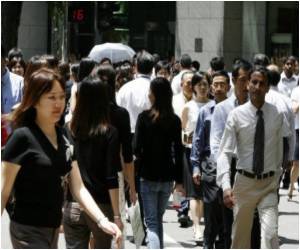
Anger has become a feature of daily life, with concerns raised about the harmful side-effects of modern, urban living on the nation's health and well-being.
"There's so much anger. It's everywhere," Yusuf Matcheswalla, a leading Mumbai psychiatrist, told AFP.
"There's anger on the roads, anger in the schools, anger in the workplace, anger in the house, anger in parliament with the politicians... Everyone we meet is getting angry."
Matcheswalla, who runs counselling centres in India's financial capital, said he and colleagues have seen a steady rise in patients coming to them with anger-related issues.
It's not hard to see why tempers might flare in an overcrowded city like Mumbai, where the demands of an estimated 18 million inhabitants stretch outdated infrastructure and the supply of basic services to breaking point.
Advertisement
Local trains, which are the fastest and cheapest way to avoid the jams, often carry more than three times their official capacity.
Advertisement
Urban India is changing fast, with technological innovations and a burgeoning consumer culture catering to a growing middle class with more disposable income, widening the gap between haves and have-nots.
Newer working patterns are also emerging, including more women going to work, and a decline in couples living in the traditional joint family structure, removing support networks and adding childcare pressures.
"When you work in a city like Mumbai you're always very stressed. You get frustrated and angry and lose patience very quickly," said Aryan, a 24-year-old professional.
Matcheswalla says such feelings are common, with the "work hard, play harder" culture in India's "Maximum City" and elsewhere -- plus the often bewildering array of choices in the new consumer economy not helping matters.
A build-up of daily frustrations and the increased use of caffeine, tobacco, alcohol or recreational drugs to cope or unwind are leaving a generation unable to relax and more likely to see red, he added.
"We're not able to deal with any minor provocation. There's a big backlash and micropsychotic episodes. They lose touch with reality and don't see the consequences," he said.
A young girl was recently thrown out of a Mumbai train after an argument over sharing a seat, while "road rage" incidents are regularly documented in India's media.
Doctors point to urban living for the increase in lifestyle diseases in India, including heart disease, which is now the country's number one killer.
Prolonged stress, a rise in smoking, lack of exercise and a diet of high-fat, Western-style junk food often bought as a sign of wealth and status are blamed.
"It's a combination of everything," said Ramakanta Panda, a leading cardiologist from the prestigious Asian Heart Institute in Mumbai, who in 2009 performed bypass surgery on Prime Minister Manmohan Singh.
"Research has found higher incidences of heart problems in urban areas compared with rural areas and when people from rural areas migrate, again the incidences go up."
Vikram Kalloo is a life coach who runs well-being classes for strung-out city executives and their staff on how to recognise and handle stress, achieve a better work-life balance and deal with anger.
"The crux of it is awareness," he said. "Many people are not willing to accept it. Either they are not well informed or in a state of denial about it."
Kalloo said modern, urban India seemed to be forgetting its traditional, spiritual roots.
"People are running but where are they heading? It's maybe just a stage, like growing pains," he said.
But he said India's authorities needed to address the lack of open spaces in cities while the corporate firms that are driving the country's economic growth had to become more aware of their employees' well-being.
"Stress is growing exponentially. People are getting stressed out, frustrated," he added.
"People say it's part of Western living. But at least in the Western world you have great infrastructure: you have parks, beaches and other public places, a better work-life balance, your own space, which is not the case here.
"Here it's money, money, money."
Aryan, at least, says he has calmed down and regained a perspective through yoga, meditation and concentrating on enjoying the smaller things in life.
"I've learnt how to deal with anger... If it's required then fine but now I think, 'what's the point?'," he said.
Source-AFP











